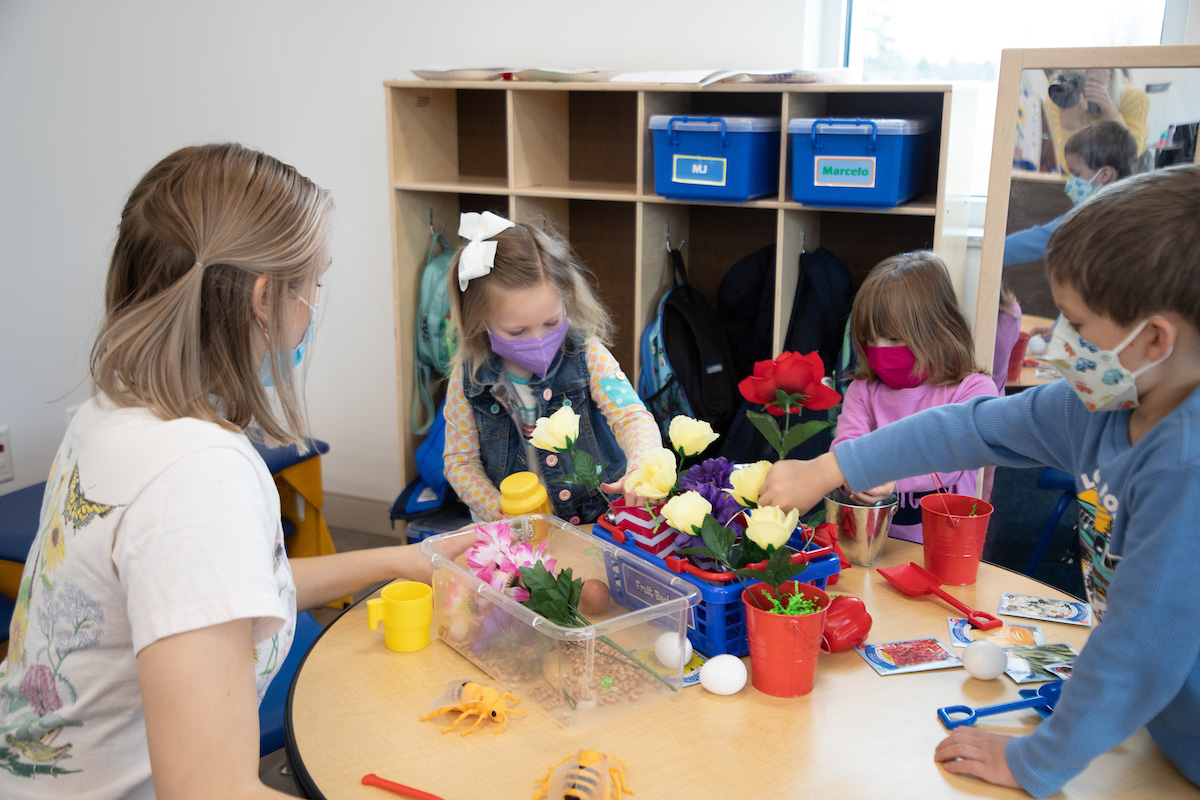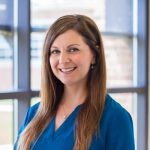
One of the ways Concordia’s School of Health Professions achieves a quality educational experience for students is by cultivating and developing meaningful community collaborations. Learn how you can partner with the Speech-Language Pathology department.
In January, Concordia University Wisconsin opened its Interprofessional Clinic, a 9,150-square-foot space designed to enhance student learning opportunities and extend valuable health and social care services to the community. This newly renovated clinic provides much-needed spaces devoted to educating all students to become interprofessional (IP) practitioners.
Later this month, School of Health Professions alumni are invited to learn more about the important role they can play in supporting the mission of the clinic and Concordia.
Creating Community Collaborations: A CUW Alumni Engagement Event
Wednesday, Oct. 25 | 5:30-7:30 p.m.
Speech-Language Pathology IP Clinic applications
The SLP program utilizes the IP clinic space in collaboration with occupational therapy (OT) and physical therapy (PT) students in the Animal Assisted Therapy Certificate program (AAT). Students have the opportunity to work interprofessionally with clients to achieve documented goals with use of a canine. Beyond AAT, we anticipate many future opportunities for our SLP students to make use of the IP space For example, working interprofessionally with clients utilizing the simulated apartment is a great way to focus on activities of daily living in a more real-world context.
In addition to the new IP Clinic, the SLP department is blessed to have a designated Speech, Language, and Hearing (SLH) Clinic on campus. The Speech, Language, and Hearing Clinic provides a range of clinic offerings that service individuals of all ages in the community. Some of the specialty clinics include: Pediatric Feeding Disorders, Voice Disorders, Adult Neurogenic Disorders.
The Child Language Literacy Center (CLLC) is a specialized clinic within the Speech, Language, and Hearing Clinic. It is an immersive preschool with a focus on speech, language, and literacy development. Children who attend are 3-5 years old, with or without speech and language needs. Admission to the CLLC is rolling, and based upon a match between clinic and family needs. Please email heather.pauly@cuw.edu with inquiries.
Another specialty clinic offering is the Pediatric Feeding Disorders clinic (PFD). The PFD clinic focuses on children that may be picky eaters, have difficulty transitioning to solid foods, exhibit poor weight gain, and/or do not allow others to touch their face/brush their teeth. The adult-focused clinic works with individuals with speech/language disorders as a result of degenerative diseases, traumatic brain injuries, stroke, etc. The voice specialty clinic focuses on individuals experiencing problems with vocal pitch, volume, quality. Examples include people with vocal nodules, spasmodic dysphonia, cleft palate, paradoxical vocal fold dysfunction, etc. Along with these aforementioned specialty clinics, we also work with children and adults with other speech-language difficulties, such as fluency, speech sound disorders, and social language.
About Speech-Language Pathology
The Department of Speech-Language Pathology (SLP) is among the newest within the School of Health Professions. Our undergraduate program in Communication Sciences and Disorders began in Spring of 2016, followed by our graduate program in Speech-Language Pathology which started its inaugural cohort in June of 2019. We are excited to say that we have graduated three cohorts of Speech-Language Pathologists to date, with two more in process. The graduate program is currently in candidacy status with an accreditation site visit scheduled for October 23 and 24 of this year. We look forward to welcoming the Council on Academic Accreditation of the American Speech-Language Hearing Association to our campus this fall.
Our average graduate cohort size is 24 students. Currently, the department consists of eight faculty, six adjuncts, and two administrative professionals. All of our faculty are licensed practitioners with many years of experience in supporting communication and swallowing in individuals across the lifespan.
Our students are actively involved in clinical training both on and off campus. The SLP program currently collaborates with two Lutheran Urban Mission Initiative (LUMIN) elementary schools in the community to provide enrichment in speech/language skills. We also provide audiology services, which serves the community by providing diagnostic hearing evaluations for children and adults. In addition, we collaborate with local schools to provide hearing screenings.
Want in?
In order to obtain a master’s degree in speech-language pathology, a bachelor’s degree in communication sciences and disorders (or equivalent from another school) is required. Concordia offers both the undergraduate and graduate degree programs needed to prepare learners to graduate as competent practitioners. Learn more about our programs by clicking below.

—This article was written by Angie Haendel, PhD, Concordia’s SLP Clinical Director and an associate professor. Haendel is a licensed speech-language pathologist across all settings. She has taught Foundations of Cognition and Language, Clinical Phonetics, Clinical Methods, Clinical Practicum, Thesis Research, and Fluency Disorders. Her research interests include autism, fluency, emergent language and child language.